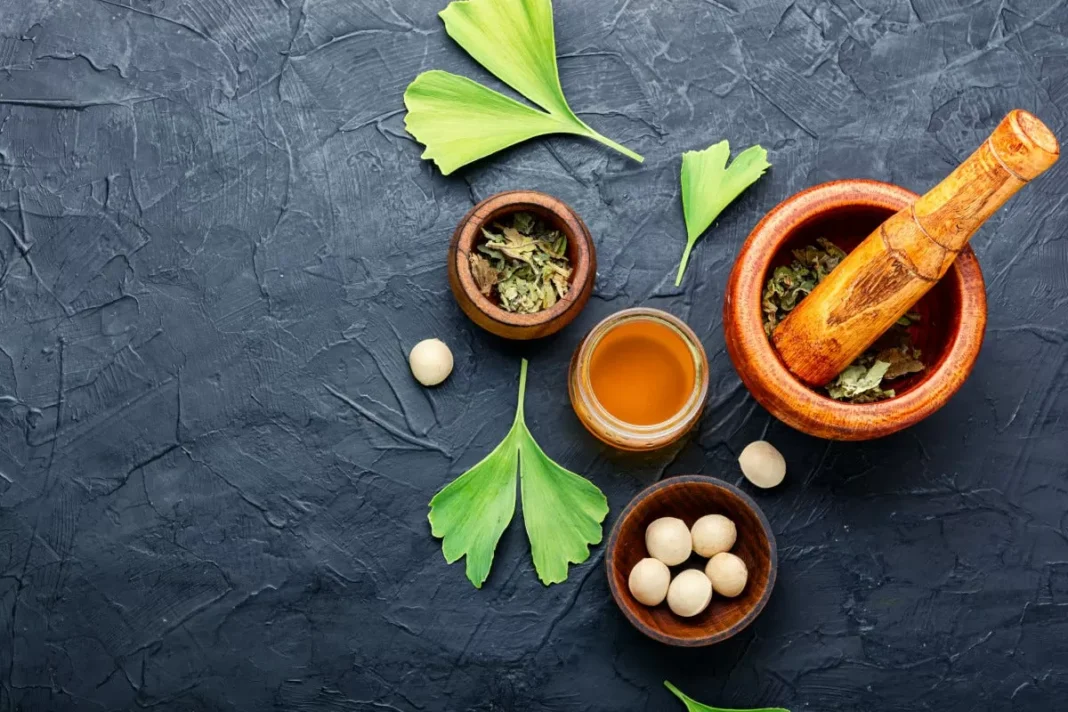The Ginkgo biloba is a plant with a long history and widespread use in both traditional and modern medicine. Its antioxidant, anti-inflammatory, and vasodilatory properties may offer benefits for brain health.
The Ginkgo biloba, also known as the maidenhair tree, is one of the oldest living tree species on earth, dating back over 270 million years. It is a slow-growing tree that can reach heights of up to 120 feet and is native to China, Japan, and Korea. Its fan-shaped leaves and distinctive fan-shaped seeds have made it a popular ornamental tree in gardens and parks around the world.
But beyond its aesthetic appeal, the Ginkgo biloba has been used for centuries in traditional Chinese medicine for a variety of health purposes. Its leaves, seeds, and nuts are believed to have medicinal properties and have been used to treat a range of conditions, from memory loss and anxiety to asthma and bronchitis.
In recent years, the Ginkgo biloba has gained popularity in the Western world for its potential benefits for brain health. Studies have shown that it contains compounds such as flavonoids and terpenoids, which have powerful antioxidant and anti-inflammatory effects. These compounds help to protect the cells from damage by neutralizing harmful free radicals and reducing inflammation in the body.
One of the most significant benefits of Ginkgo biloba for brain health is its ability to improve cognitive function. Research has shown that it may help to enhance memory, attention, and concentration, particularly in older adults. This is due to its ability to increase blood flow to the brain, providing it with the necessary oxygen and nutrients for optimal functioning. It may also help to protect brain cells from damage, potentially slowing down age-related cognitive decline.
In addition to its cognitive benefits, Ginkgo biloba may also have a positive impact on mood and mental health. Studies have suggested that it may have antidepressant properties, potentially due to its ability to increase the production of serotonin, a neurotransmitter that plays a vital role in regulating mood. It may also help to reduce anxiety and stress, making it a valuable natural remedy for those struggling with mental health issues.
Moreover, the Ginkgo biloba has shown promising results in treating age-related eye diseases such as macular degeneration and glaucoma. Its antioxidant properties may help to protect the retina from damage and improve blood flow to the eyes, potentially slowing down the progression of these diseases.
But it’s not just the aging population that can benefit from the Ginkgo biloba. Studies have also shown that it may have positive effects on children with ADHD, helping to improve their attention and behavior. It may also support overall brain development in children, making it a potential natural alternative to traditional medication.
While more research is needed to fully understand the potential benefits of Ginkgo biloba for brain health, its long history of use and promising results in studies make it a valuable natural supplement for those looking to support their brain function and overall well-being. However, as with any supplement or medication, it’s essential to consult with a healthcare professional before adding it to your routine, especially if you have any underlying health conditions or are taking other medications.
In conclusion, the Ginkgo biloba is a remarkable plant with a rich history and a wide range of potential benefits for brain health. Its antioxidant, anti-inflammatory, and vasodilatory properties make it a valuable natural remedy for cognitive function, mood, and eye health. With its potential to support both the young and old, it’s no wonder that the Ginkgo biloba continues to be a popular choice for those looking to improve their overall well-being.

